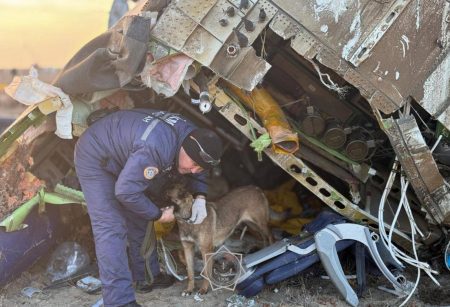Athens is focusing on the new landscape that could spring up by the closure of the issue of the demarcation of the Exclusive Economic Zone of Greece – Albania. The issue is at the top of the agenda of the bilateral contacts of Prime Minister Kyriakos Mitsotakis, who is making a two-day visit to Albania, on the occasion of the EU – Western Balkans Summit. The first such meeting to be held in an acceding country.
The second major issue for Greece is the issue of the Greek ethnic minority. With Kyriakos Mitsotakis planning on Wednesday a tour of the villages where Greek minority members live.
The meetings
The prime minister’s program in Tirana starts at 12 noon, with the participation in the proceedings of the Plenary of the European Union – Western Balkans Summit.
At 18:00 Kyriakos Mitsotakis will meet with the Archbishop of Tirana, Durres and all Albania Anastasios. At 18:45 he will have a meeting with the Speaker of the Parliament of Albania Lidita Nikola and at 19:30 with the President of the Republic of Albania Bairam Begai. Then, at 20:00 the Prime Minister will meet with his Albanian counterpart Edi Rama.
On Wednesday, December 7, the Prime Minister will visit Himarra, Livadia and Dervitsani, where he will have meetings with members and representatives of the Greek National Minority.
Government sources spoke of a “trip that Mitsotakis wanted for a long time and managed to make on the occasion of the EU – Western Balkans Summit”.
Balances
With diplomats speaking of an “ambitious” trip that is at the same time an exercise in delicate balances and requires special attention.
Albania is a special case for Greece, and the relations between Athens and Tirana have many dimensions. In this context, the Prime Minister will be accompanied by the Minister of Foreign Affairs, Nikos Dendias and the Deputy Minister of Foreign Affairs, Costas Fragogiannis.
The Hague in the background
In terms of bilateral contacts, the focus is clearly on maritime zones and the issue of recourse to The Hague, which has been agreed upon at the Rama-Dendias meeting in 2020 and has still not progressed. The implementation of the joint appeal to the International Court of Justice in The Hague for the EEZ is something that for Athens is a highly symbolic decision vis-à-vis what Turkey does.
The case seems to be “stuck”, since so far there has been no co-promisor and white smoke did not even emerge from Dendia’s meeting with his Albanian counterpart, Olta Jasta on Friday, which had a preparatory nature. Today, the Greek side is expected to emphasize once again its willingness to make progress and move the case forward, depending on the progress made by the Foreign Ministries of the two countries.
This constitutes a confirmation of Athens’ commitment to resolve outstanding issues within the framework of international law, in a way that contributes to security and stability in the region.
It is estimated that, according to competent sources, economic issues, issues of the minority, of the large Albanian community living in Greece and issues concerning the cooperation of the two countries will also be on the table. While Kyriakos Mitsotakis is expected to emphasize the firm will of Athens for continuous improvement of relations with Tirana.
The role of Turkey
It is worth noting that Ankara has a strong role in Albania and according to many salient opinions it played a role in the collapse of the first attempt to delimit the Athens-Tirana EEZ in 2009.
The Turkish president, Recep Tayyip Erdogan in his exchange of visits with Edi Rama has repeatedly tried to emphasize his influence in the country and the projects that Turkey is doing in Albania.
However, diplomatic sources in Athens make a distinction between the relations developed by Greek diplomacy and Turkish politics and note that Albania is a very important country for Greece.
The visit to the minority
The second leg of the visit concerns the decision of Kyriakos Mitsotakis to be the first prime minister since his father, Konstantinos Mitsotakis, in 1991, to visit the villages where the Greek minority lives. Himarra, Livadia and Dervitsani are among the villages that the Prime Minister will visit with the aim of seeing, hearing and getting to know the people of the Greek minority.
As stated by competent sources, the aim is “to record issues and examine whether Greece can constructively contribute to their resolution”, with the aim of improving living conditions and the well-being of the minority. Mitsotakis’ intention, as government officials said, is to “listen” mainly.
The presence of deputy minister Fragogiannis, who was in the area in April, is to do a follow up of what has been done and what is pending in terms of contribution to the improvement of the infrastructure.
A special place in the Prime Minister’s tour is the region of Himarra. Since a sitting prime minister has never visiter the town before.
The “Albania” case is also important in the run-up to elections, since national issues are high on the citizens’ agenda. Government officials, however, reject the characterization of the trip as pre-election. And they insist on emphatically emphasizing that the big bet is the low tones.


